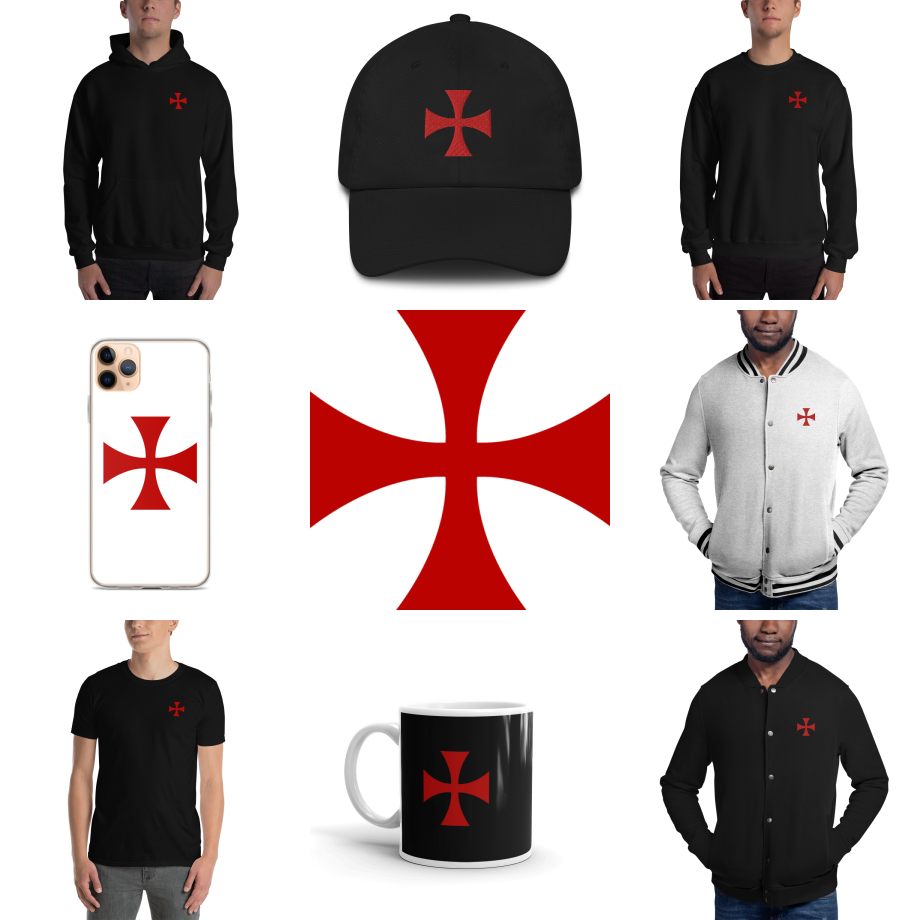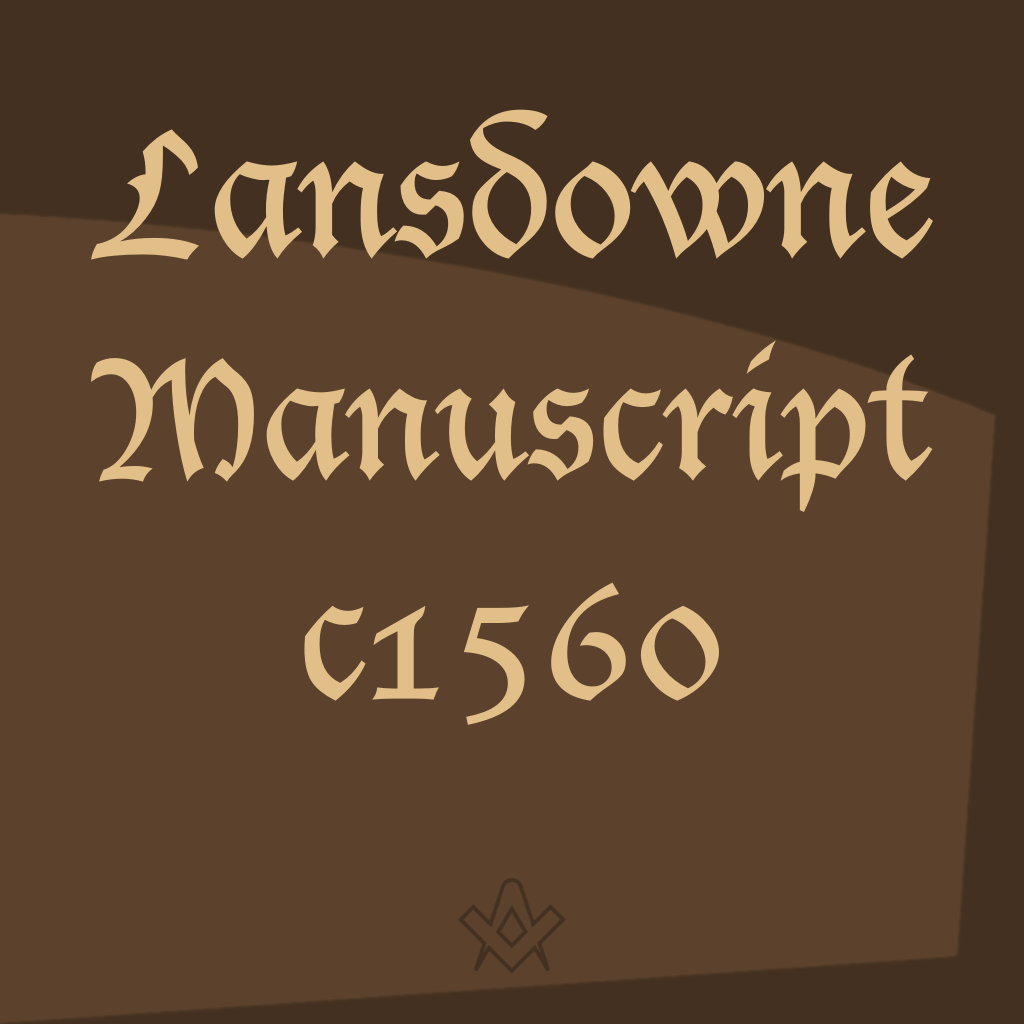Lansdowne Manuscript
About A.D. 1560.
Here Begineth the true order of Masonrie
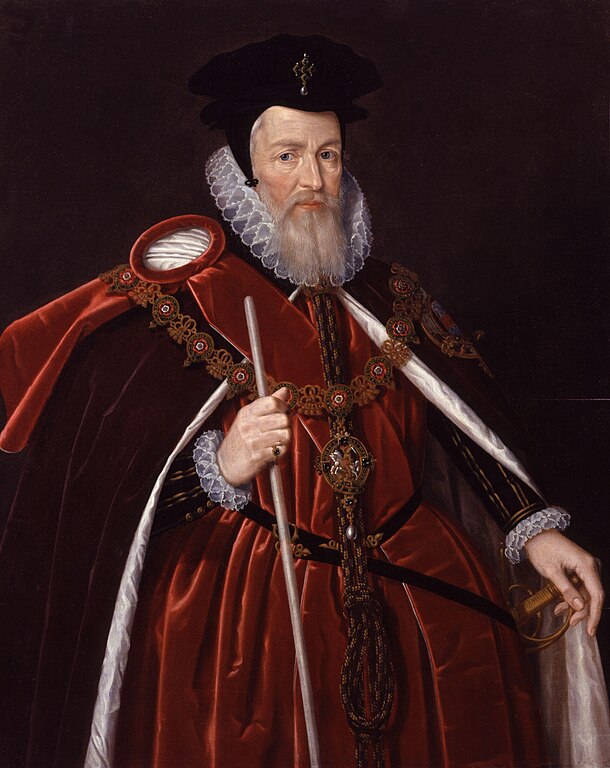
William Cecil, 1st Baron Burghley
IMAGE LINKED: wikimedia Attribution 4.0 International (CC BY 4.0)
The Lansdowne manuscript, is preserved in the British Museum.
William Petty, Marquis of Lansdowne, (1784) left a large collection of books and manuscripts of which the printed portion was dispersed at his death.
The Manuscripts, consisting of 1245 volumes, were purchased in 1807, by a parliamentary grant, for the sum of £4,925.
This MS is amongst the Burghley Papers, believed to have been part of the collection made by Lord Burghley, Secretary of State, at the time of Queen Elizabeth I, who died in 1598.
Unless it has therefore been included by mistake, it would probably date from the last half of the 16th century, and the late Bro. Woodford was wont to describe it as circa 1560. Mr. Bond, however, late chief librarian, British Museum, sets it down at about 1600.
Source: https://www.bl.uk/collection-guides/lansdowne-manuscripts
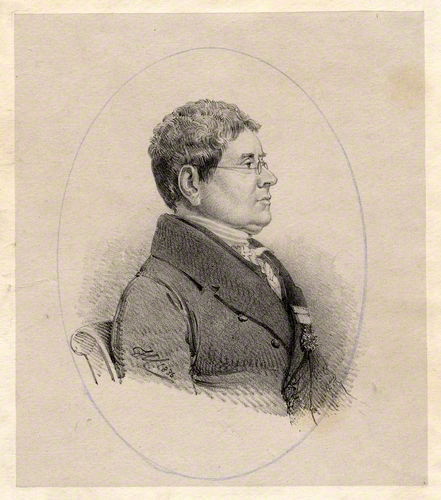
Portrait of Sir Henry Ellis, (1777–1869), English librarian and antiquarian.
IMAGE LINKED: wikimedia Attribution 4.0 International (CC BY 4.0)
The catalogue of the Lansdowne MSS. A.D. 1812, Folio 98/48 contains the following description of this document, ‘A very foolish legendary account of the original of the order of Freemasonry’, in the handwriting, it is said, of Sir Henry Ellis.
Referance Source: British Library
Mr. Richard Sims, (MS. Department, British Museum) states that these ‘Orders ‘ have never formed a Roll, but there are indications of the sheets having been stitched together at the top, and paper or vellum was used for additional protection.
Edited By: G. W. Spews, P.M, Secretary QC Lodge
Reference Source: https://www.quatuorcoronati.com/wp-content/uploads/2016/12/QCA_VOL-2.pdf
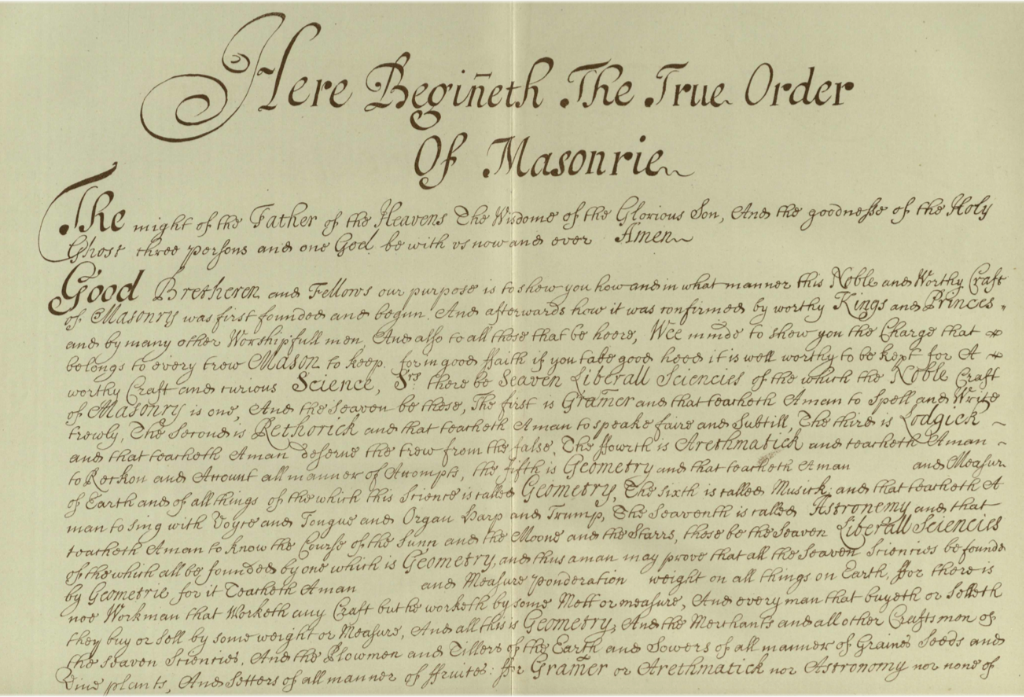
Lansdowne Manuscript c1560
IMAGE LINKED: wikimedia Attribution 4.0 International (CC BY 4.0)
Foolish it may well be, but there are a few observations to note:
First, there is no reference of the word ‘Freemason’ or even ‘Free Mason’, only ‘Free born’. This might suggest Free Mason was not yet in use in England.
Second, it includes very similar references to the 1723 Book of Constitutions, by Anderson. The introduction has similar references to the Tower of Babel, Noah and his sons, King Solomon’s legend, Egypt gets a quick mention, and King Athelstan is written into the history; establishing legends which later become the basis for the allegory used in the Craft degrees.
Lastly, within the manuscript there are the Charges, which are still incorporated in our current rituals.
[some of the spelling has been updated to current style, also some additional explanation has been added where old English is retained]
Here Begineth the true order of Masonrie
The might of the Father of the Heavens The Wisdom of the Glorious Son, And the goodness of the Holy Ghost three persons ‘and one God be with us now and ever Amen.
Good Brethren and Fellows our purpose is to show you how and in what manner this Noble and Worthy Craft of Masonry was first founded and begun,
And afterwards how it was confirmed by worthy Kings and Princes and by many other Worshipful men,
And also to all those the be here, reminded to show you the charge that belongs to every true Mason to keep, for in good faith if you take good heed it is well worthy to be kept for a worthy craft and curious Science.
Sirs there be Seven Liberal Sciences of which the noble craft of Masonry is one, And the Seven be these,
The first is Grammar and that teaches a man to spell and write truly.
The second is Rhetoric and that teaches a man to speak fair and subtill, [Something subtle is not immediately obvious or noticeable.]
The third is Logic and that teaches a man desire the true from the false,
The fourth is Arithmetic and that teaches a man to reckon and account all manner of accounts,
The fifth is Geometry and that teaches a man and measure of earth and of all things of the which this science is called Geometry,
The sixth is called Music, and that teaches a man to sing with voice and tongue and Organ Harp and Trumpet,
The Seventh is called Astronomy and that teaches a man to know the course of the Sun and the Moon and the Stars,
These be the Seven Liberal Sciences of the which all be founded by one which is Geometry, and thus a man, may prove that all the Seven Sciences be found by Geometric for it teaches a man and Measure Ponderation [careful thought, especially before making a decision or reaching a conclusion] weight on all things on Earth,
For there is no Workman that works any craft but he works by some Mett [old English for the measure of volume] or Measure.
And every man that buys or sells they buy or sell by some weight or measure,
And all this is Geometry, And the Merchants and all other Craftsmen of the Seven Sciences, and the Ploughmen and Tillers of the Earth and Sowers of all manner of Grains Seeds and Vine plants, and Setters of all manner of fruits :
For Grammar or Arithmetic nor Astronomy nor none of all the Seven Sciences can no man find Mett or Measure in without Geometry wherefore methinks that the said Science of Geometry is most worthy.
And all the other be founded by it. But how this worthy Science and Craft was first founded and begun I shall tell you before Noah’s flood there was a man which was called Zameth [Lamech] as it is written in the Bible in the 4th Chapter of Genesis, and this Zameth [Lamech] had 2 wives the one called Ada [Adah] the other Sella [Zillah], by the first wife Ada he had a son and a Daughter
And these 4 Children found the beginning of all these Crafts and Sciences in the World floor the Eldest Son Gabell found the Craft of Geometry and he fed flocks of Sheep and Lambs in the field :
And first wrought houses of Stone and he and his Brother Tuball found the Crafts of Music song of mouth harp and Organs and all other Instruments.
The third Brother Tubalican found the Smith Craft of Gold and Silver Iron and Copper and Steel, And the Daughter found the Craft of Webbing and these Children knew well that God would take vengeance for Sinn either by fire or Water, wherefore they wrought the Sciences they had founded in 2 Fillers of Stone, that they might be found afterwards, and the one Stone was called Marble for that would not burn in the fire, and the other Stone was called Latherin and that would not be drowned with water;
Our Intent is to tell you how and in what manner these Stones were found that these Sciences was written on the Herminenis that was Cubb his Son,
The which Cubb. Semet. Son the which Son was Noah’s Son this same Herminerus was afterwards called Armes the father of the Wisemen he found one of the 2 pillars of Stone and found the Science written therein and he taught it to others,
And at the making of the tower of Babylon, was Masonry first made there much of, and the King of Babylon called Nemroth who was a Mason himself and loved well the rest as is said with the Masters of Stories,
And when the City of Ninniey or the City of the East Port should have been made Nemroth the King of Babylon sent thither Sixty Masons of his Region to the King of Ninevey his cozen, And when he sent them forth he gave them a Charge in this manner.
The first was that they should be true to their King Lord or Master that they served and that they should Ordain the most wise and cunning man to be Master of the King or Lords work that was amongst them, and neither for Love Riches nor favour to set another that had little cunning to be Master of that Work whereby the Lord should be ill served And the Science ill Defamed.
Secondly that they should call the Governor of the Work Master all the time they wrought with him and other many more Charges that were too long to write, and for the keeping of all those Charges he made them swear a great Oath which men used at that time.
And ordained for them reasonable pay that they might live with honesty, and also, he gave them in Charge that they should Assemble together every year once to see how they might Work best to serve the King or Lord for their profit and their own Workmanship,
And also that they should correct within themselves those that had Trespassed against the Science or Craft,
And thus was this Noble Craft first grounded there, And the worthy Mr Euclid gave it the name of Geometry, [Euclidean geometry – 300 BC]
And how it is called throughout all the World Masonry Long after when the Children of Israeli were come into the Land Berhest which is now called the Country of Jerusalem where King David [1010–970 BCE] begun the Temple that is now called Templu Dei, and is named with us the Temple of Jerusalem, and the same King David Loved Masons then right well and gave them good pay, and he gave the Charges and Manners that; he learned in Egypt which were given by that worthy Doctor Euclid and other more charges that you shall here afterwards;
And after the decease of King David, then Reigned Solomon that was King David’s Sound and he performed out the Temple that his father had begun and he sent after Masons into Diverse Countries and into Diverse Lands and he gathered them together so that he had 24000 Workers of Stone and were all named Masons and he Chose out of them 3000 and were all ordained to be Masters, Rulers and Governors of his work,
And then was there a King of another Region which men called Iram [Hiram King of Tyre] and he loved well King Solomon and gave him Timber to his work and he had a Son that was called a man that was Master of Geometry, and was chief Master of all his Masonry & of all his engraving, carving and all other Masonry that belonged to the Temple, this is Witnessed in the holy Bible (in Libro Regium quarto et Tertio) and this same Solomon Confirmed both the Charges and the Manners which his father had given.
And thus, was the worthy Craft of Masonry confirmed in that country of Jerusalem And many other Regions and Kingdoms men walked into diverse countries some because of Learning to learn more Cunning, [Skills]
And some to teach them that had but little Cunning, and so it befell that there was a Curious man named Namas Greecious who had been at the making of Solomon’s Temple
And he came from thence into France and there he taught the Science of Masonry to men of that Land and so there was one of the Royal Line of France called Charles Marshall and he was a man that loved well the said Craft and took upon him the Rules and Manners and after that by the grace of God he was elect to be the King of France and when he was in his Estate he helped to make those Masons that were now,
and set them on Work and gave them Charges and Manners and good pay as he had Learned of other Masons, and Confirmed them a Charter from year to year to hold their Assembly when they would and Cherished them right well,
and thus came this Noble craft into France and England, in that season stood void as ffbragine[?] Charge of Masons until St. Albanes and St. Albans was a worthy Knight and Steward to the King of his household and had Government of his Realm And also of the making of the Walls of the said Town, and he loved well Masons and Cherished them much and made their pay right good for he gave them iijs [3s shillings] vjd [6d pennies] a week & iijd [3d pennies] [Since the Middle Ages, a “j” has sometimes been substituted for the final “i” of a “lower-case” ]
before that time all the Land a Mason took but one penny a day and his meat till St. Albones mended it and he got them a Charter of the King and his Council for to hold a General Council and gave it to name Assembly.
There at was he himself and did help to make Masons and gave them Charges as you shall here afterwards, soon after the Decease of St. Albones there came Diverse Wars into England out of Diverse Nations so that the good rule of Masons was dis-hired and put down until the time of King Adilsion [Athelstan – c894 – 939]
in his time there was a worthy King in England that brought this Land into good rest and he built many great works and buildings, therefore he loved well Masons for he had a Son called Edwin[Edmund I 921 – 946]
the which Loved Masons much more than his father did and he was so practised in Geometry that he delighted much to come and talk with Masons and to Learn from them the Craft,
And after for the love he had to Masons and to the Craft, he was made Mason at Windsor and he got of the King his father a Charter and Commission once every year to have Assembly within the Realm where they would within England and to correct within themselves faults & Trespasses that were done as Touching the Craft, and he held them an Assembly at York and there he made Masons and gave them Charges and taught them the Manners, and Commands the same to be kept ever afterwards
And took them the Charter and Commission to keep their Assembly and Ordained that it should be renewed from King to King,
and when the Assembly were gathered together he made a Cry that all old Masons or young that had any Writings or Understanding of the Charges and manners that were made before their Lands wheresoever they were made Masons that they should show them forth,
there were found some in French, some in Greek some in Hebrew and some in English, and some in other Languages, and when they were read and over seen well the intent of them was understood to be all one, and then he caused a Book to be made thereof how this worthy Craft of Masonry was first founded and he himself Commanded and also then caused that it should be read at any time when it should happen any Mason or Masons to be made to give him or them their Charges,
and from that time until this Day Manners of Masons have been kept in this Manner and form as Well as Men might Govern it and furthermore at diverse Assemblies have been put and Ordained diverse Charges by the best advice of Masters and fellows (Tunc vnus ex Senioribus tentat Librum et ille ponent manam Suara Super Librum)
Every man that is a Mason take good heede to these Charges, If any man find himself guilty in any of these Charges we pray that he may amend himself or principally for dread of God you that be charged take good heede that you keep all these Charges well for it is a great peril to a man to forswear himself upon a Book.
The First Charge is that you shall be true to God and holy Church and to use no Error or Heresy you understanding and by wise men’s teaching, also that you shall be Liège men to the King of England without Treason or any falsehood and that you know no Treason or treachery but that ye amend and give knowledge thereof to the King or his Council also that ye shall be true to one another (that is to say) every Mason of the Craft that is Mason allowed you shall do to him as you would be done to yourself.
Secondly and you shall keep true all the Council of the Lodge or of the Chamber, and all the Council of the Lodge that ought to be kept by the way of Mason hood also that you be no there nor thieves to your knowledge free that you shall be true to the King Lord or Master that you serve and truly to see and work for his advantage also you shall call all Masons your fellows or your Brethren and no other names:
Fourthly also you shall not take your fellows wife in Villoney [Villainy – wicked or criminal behaviour] nor deflowre [deprive (a woman) of her virginity] his Daughter or Servant nor put him to disworship [withholding or deprivation of honour] also you shall truly pay for your meat or drink wheresoever you go to Table or Board whereby the Craft or Science may be slandered.
These be the charges General that belong to every true Masons both Masters and Fellows.
Now I will rehearse other Charges single for Masons Allowed.
First that no Mason take on him no Lords work nor other mans but if he know himself well able to perform the work so that the Craft have no Slander.
Secondly also that no Master take work but that he take reasonable pay for it, so that the Lord may be truly served and the Master to live honestly and to pay his fellows truly also that no Master or fellow suplant others of their work (that is to say) if he have taken a work or else stand Master of a work that he shall not put him out without he be unable of Cunninge [Skill] to make an end of his Work, also that no Master nor fellow shall take no Apprentice for less than Seven years and that the apprentice be able of Birth that is free borne and of Limbs whole as a Man ought to be and that no Mason or fellow take no allowance to be made Mason without the Assent of his fellows at the least Six or Seven, that he made be able in all degrees that is free borne and of a good Kindred true and no bondsman and that he have his right Lirnbes [a feeling of love for someone or something particular] as a man ought to have.
Thirdly also that a Master take no apprentice without he have occupation sufficient to occupy two or three Fellows at least.
Fourthly also that no Master or fellow put away Lords work to task that ought to be Journey work.
Fiftly also that every Master give pay to his fellows and Servants as they may deserve so that he be not defamed with false working.
Sixthly also that none Slander another behind his back to make him loose his good name.
Seventhly that no fellow in the house or abroad answer another ungodly or depravably [moral corruption; wickedness ] without cause.
Eightley also that every Master Mason reverence his elder also that a Mason be no Common player at the Dice, Cards or hazard nor at any other unlawful plays through the which the Science and craft may be dishonoured.
Ninethly also that no Mason use no Lechery nor have been abroad whereby the Craft may be dishonoured or Slandered.
Tenthly also that no fellow go into the Town by night except he have a, fellow with him who may bear record that he was in an honest place.
Eleventhly also that every Master and fellow shall come to the Assembly if it be within 50 Miles of him if he have any warning and if he have trespassed against the Craft to abide the award of the Master and fellows.
Twelthly also that every Master Mason and fellow that have trespassed against the Craft shall stand in correction of other Masters and fellows to make him accord [reconcile] and if they cannot accord to go to the Common Law.
Thirteenthly also that a Master or fellow make not a Moulde [bad as in mouldy] Stone Square nor rule to no Lowen [Cowen not a mason, someone who works in stone walls]- nor Set no Lowen work within the Lodge nor without to no Mould Stone.
Fourteenthly also that every Mason receive or cherish Strange Fellows when they come over the Country and set them on work if they will work as the Manner is (that is to say) if the Mason have any Moulde Stone in his place on work and if he have none the Mason shall refresh him with money unto the next Lodge.
Fifteenthly also that every Mason shall truly serve his Master for his pay.
Sixteenthly also that every Master shall truly make an end of his work task or Journey whether so it be.
These be all the Charges and Covenants that ought to be had read at the making of a Mason or Masons.
“The Almighty God who have you & me in his keeping Amen.”
Footnotes
Original Text
LANSDOWNE MS.
About A.D. 1560.
“HERE BEGINETH THE TRUE ORDER OF MASONRIE.
“The might of the Father of the Heavens The Wisdome of the Glorious Son, And the goodnesse of the Holy Ghost three persons ‘and one God be with vs now and ever Amen.
“Good Bretheren and Fellows our purPose is to shew you how and in what manner this Noble and Worthy Craft of Masonry was first founded and begun, And afterwards how it was confirmed by worthy Kings and Princes and by many other Worshipfull men, And also to all those the be heere, Weeminde to shewe you the Charge that belongs to every trew Mason to keep, for in good Faith if you take good heed it is well worthy to be kept for A worthy Craft and curious Science.
Srs there be Seaven Liberal! Sciencies of which the Noble Craft of Masonry is one, And the Seaven be these, The first is Gramer and that teacheth A man to Spell and Write trewly. The second is Rethorick and that teacheth A man to speake faire and Subtill, The third is Lodgick and that teacheth A man deseme the trew from the false, The ffowrth is Arethmatick and that teacheth A man to Reckon and Account all manner of Accompts, the fifth is Geometry and that teacheth A man and Measur of Earth and of all things of the which this Science is called Geometry, The sixth is called Musick, and that teacheth A man to sing with Voyce and Tongue and Organ Harp and Trump, The Seaventh is called Astronemy and that teacheth A man to know the Course of the Sunn and the Moone and the Starrs, these be the Seaven Liberall Sciencies of the which all be founded by one which is Geometry, and thus a man, may prove that all the Seaven Sciencies be founde by Geometric for it Teacheth A man and Measure Ponderation weight on all things on Earth, For there is noe Workman that Worketh any Craft but he worketh by some Mett or Measure. And every man that buyeth or Selleth they buy or Sell by some weight or Measure, And all this is Geometry, And the Merchants and all other Craftsmen of the Seaven Sciencies, and the Plowmen and Tillers of the Earth and Sowers of all manner of Graines Seeds and Vine plants, and Setters of all manner of ffruits : For Gramer or Arethmatick nor Astronomy nor none of all the Seaven Sciencies can no man finde Mett or Measure in without Geometry wherefore methinks that the said Science of Geometry is most worthy. And all the other be founded by it. But how this worthy Science and Craft was first founded and begun I shall tell you before Noyes fflood there was A man which was called Zameth as it is written in the Bible in the 4th Chapter of Genesis, and this Lameth had 2 Wifes the one called Ada the other Sella, by the first wife Ada he begat a Sonne and a Daughter And these 4 Children found the begining of all these Crafts and Sciencies in the World flfor the Eldest Sonne Gabell found the Craft of Geometry and he fed fiflocks of Sheep and Lambs in the fifeild : And first wrought houses of Stone and he and his Brother Tuball found the Crafts of Musick song of mouth harp and Organs and all other Instruments. The third Brother Tubalican found the Smith Craft of Gold and Silver Iron and Copper and Steel, And the Daughter found the Craft of Webbing and these Children knew well that God would take vengeance for Sinn either by ffire or Water, wherefore they wrought the Scyences they had founded in 2 Fillers of Stone, that they might be found afterwards, and the one Stone was called Marble for that would not burne in the ffire, and the other Stone was called Latherne and that would not be drowned with water; Our Intent is to tell you how and in what manner these Stones were found that these Sciencies was written on the Herminenis that was Cubb his Sonne, The which Cubb. Semet. Sonne the which Sonne was Noaths Sonne this same Herminerus was afterwards called Armes the ffather of the Wisemen he found one of the 2 pillers of Stone and found the Science written therein and he taught it to others, And at the making of the tower of Babilon, was Masonrie first made there much of, and the King of Babilon called Nemroth who was a Mason himselfe and loved well the rest as is said with the Masters of Stories, And when the City of Ninniey or the City of the East Port should have bin made Nemroth the King of Babilon sent thither Sixty Masons of his Region to the King of Ninevey his cozen, And when he sent them forth he gave them a Charge in this manner.
“The first was that they should be true to their King Lord or Master that they served and that they shoulde Ordaine the most wise and cunning man to be Master of the King or Lords worke that was amongst them, and neither for Love Riches nor favour to sett another that had little cunninge to be Master of that Worke whereby the Lord should bee ill served And the Science ill Defamed.
“Secondly that they should call the Governor of the Worke Master all the tyme they wrought with him and other many more Charges that were to long to write, and for the keeping of all those Charges he made them sware a great Oath which men vsed at that time. And ordained for them reasonable pay that they might live with honestie, and also he gave them in Charge that they should Assemble togather every yeare once to see how they might Worke best to serve the King or Lord for their profitt and their owne Workship, And also that they should correct within themselves those that had Trespassed against the Science or Craft,
And thus was this Noble Craft first grounded there, And the worthy Mr Ewclides gave it the name of Geometry, And how it is called throughout all the World Masonrie Long after when the Children of Israeli were come into the Land Berhest which is now called the Countrey of Jerusalem where King David begun the Temple that is now called Templu Dei, and is named with us the Temple of Jerusalem, and the same King David Loved Masons then right well and gave them good pay, and he gave the Charges and Manners that; he learned in Egipt which were given by that worthy Doctor Ewclid and other more charges that you shall heare after wardes; And after the decease of King David, then Reigned Solloman that was King Davids Sound and he performed out the Temple that his ffather had begun and he sent after Masons into Diverse Countreys and into Diverse Lands and he gathered them togeather so that he had 24000 Workers of Stone and were all named Masons and he Chosed out of them 3000 and were all ordained to be Masters, Rulers and Governors of his worke, and then was there a King of another Region which men called Iram and he loved well King Solloman and gave him Timber to his work and he had a Sonne that was called a man that was Master of Geometry, and was chiefe Master of all his Masonrie & of all his Graving, Carving and all other Masonry that belonged to the Temple, this is Witnessed in the holy Bible (in Libro Regium quarto et Tertio) and this same Solloman Confirmed both the Charges and the Manners which his ffather had given. And thus was the worthy Craft of Masonrie confirmed in that countrey of Jerusalem And many other Regions and Kingdoms men walked into Diverse Countreys some because of Learning to learne more Cunning, And some to teach them that had but little Cunning, and soe it befell that there was a Curious man named Namas Greecious who had beene at the makeing of Sollomans Temple And he came from thence into France and there he taught the Science of Masonrie to men of that Land and so there was one of the Royall Line of France called Charles Marshall and he was A man that loved well the said Craft and took upon him the Rules and Manners and after that By the Grace of God he was elect to be the King of ffrance and when he was in his Estate he helped to make those Masons that were now, and sett them on Work and gave them Charges and Manners and good pay as he had Learned of other Masons, and Confirmed them a Charter from yeare to yeare to hold their Assembly when they would and Cherished them right well, and thus came this Noble craft into ffrance and England, in that season stood void as ffbragine Charge of Masons vntill St. Albanes and St. Albans was a worthy Knight and Steward to the King of his household and had Government of his Realme And also of the makeing of the Walls of the said Towne, and he loved well Masons and Cherished them much and made there pay right good for he gave them iijs vjd a week & iijd before that time all the Land a Mason took but one penny a day and his meat till St. Albones mended it and he gott them a Charter of the King and his Councell for to hold a Generall Councell and gave it to name Assembly. Thereat was he himselfe and did help to make Masons and gave them Charges as you shall heare afterwards, soone after the Decease of St. Albones there came Diverse Warrs into England out of Diverse Nations so that the good rule of Masons was dishired and put downe vntill the tyme of King Adilsion in his tyme there was a worthy King in England that brought this Land into good rest and he builded many great workes and buildings, therefore he loved well Masons for he had a Sonne called Edwin the which Loved Masons much more then his ffather did and he was soe practized in Geometry that he delighted much to come and talke with Masons and to Learne of them the Craft, And after for the love he had to Masons and to the Craft, he was made Mason at Windsor and he gott of the King his ffather a Charter and Commission once every yeare to have Assembley within the Realme where they would within England and to correct within themselves ffaults & Trespasses that weere done as Touching the Craft, and he held them an Assembley at Yorke and there he made Masons and gave them Charges and taught them the Manners, and Comands the same to be kept ever afterwards And tooke them the Charter and Commission to keep their Assembly and Ordained that it should be renewed from King to King, and when the Assembley were gathered togeather he made a Cry that all old Masons or young that had any Writeings or Vnderstanding of the Charges and manners that weere made before their Lands wheresoever they were made Masons that they should shew them forth, there were found some in ffrench, some in Greek some in Hebrew and some in English, and some in other Languages, and when they were read and over seen well the intent of them was vnderstood to be all one, and then he caused a Booke to be made thereof how this worthy Craft of Masonrie was first founded and he himselfe Comanded and also then caused that it should be read at any tyrae when it should happen *any Mason or Masons to be made to give him or them their Charges, and from that time vntill this Day Manners of Masons have been kept in this Manner and forme as Well as Men might Governe it and ffurthermore at diverse Assemblyes have been put and Ordained diverse Charges by the best advice of Masters and ffellows (Tunc vnus ex Senioribus tentat Librum et ille ponent manam Suara Super Librum^ Every man that is a Mason take good heede to these Charges, If any man finde himselfe guilty in any of these Charges we pray that he may amend himselfe or princpially for dread of God you that be charged take good heede that you keep all these Charges well for it is a great perill to a man to forsweare himselfe vpon a Booke.
“The First Charge is that you shall be true to God and holy Church and to vse noe Error or Heresie you vnderstanding and by wise mens teaching, also that you shall be Leige men to the King of England without Treason or any ffalshood and that you know noe Treason or treachery but that ye amend and give knowledge there of to the King or his Councell also that ye shall be true to one another (that is to say) every Mason of the Craft that is Mason allowed you shall doe to him as you would be done to yor selfe.
“Secondly and ye shall keep truely all the Councell of the Lodge or of the Chamber, and all the Councell of the Lodge that ought to be kept by the way of Masonhood also that you be noe theefe nor theeves to yor knowledge free that you shall be true to the King Lord or Master that you serve and truly to see and worke for his advantage also you shall call all Masons yor ffellows or yor Brethren and noe other names:
” Fowerthly also you shall not take yor ffellows wife in Villoney nor deflowre his Daughter or Servant nor put him to disworship also you shall truely pay for yor meat or drinke wheresoever you goe to Table or Board whereby the Craft or Science may be slandered. These be the charges Generall that belong to every true Masons both Masters and Fellows.
“Now I will rehearse other Charges single for Masons Allowed.
“First that noe Mason take on him noe Lords worke nor other mans but if he know himselfe well able to pforme the work soe that the Craft have noe Slander.
“Secondly also that noe Master take worke but that he take reasonable pay for it, soe that the Lord may be truely served and the Master to live honestly and to pay his ffellows truely also that no Master or fifellow suplant others of their worke (that is to say) if he have taken a worke or else stand Master of a worke that he shall not put him out without he be vnable of Cunninge to make an end of his Worke, alsoe that noe Master nor ffellow shall take noe Prentice for lesse than Seaven yeares and that the prentice be able of Birth that is ffree borne and of Limbs whole as a Man ought to be and that noe Mason or ffellow take no allowance to be maid Mason without the Assent of his ffellows at the least Six or Seaven, that he that he maide be able in all degrees that is free borne and of a good Kindred true and no bondsman and that he have his right Lirnbes as a man ought to have.
“Thirdly also that a Master take noe Prentice without he have Occupcon sufficient to Occupie two or three Fellows at least.
“Fowerthh also that noe Master or ffellow put away Lords worke to Taske that ought to be Journey worke.
“Fiftly also that every Master give pay to his ffellows and Servants as they may deserve so that he be not defamed with false working.
“Sixthly also that none Slander another behind his back to make him loose his good name.
“Seventhly that noe ffellow in the house or abroad answere another Vngodly or repravably without cause.
“Eightley also that every Master Mason reverence his elder also that a Mason be no Common player at the Dice Cards or hazard nor at any other Vnlawful playes through the which the Science and craft may be dishonerd.
“Ninethly also that noe Mason vse no Lechery nor have been abroad whereby the Craft may be dishonored or Slandered.
“Tenthly also that no ffellow goe into the Towne by night except he have a, ffellow with him who may beare record that he was in an honest place. “Eleventhly also that every Master and ffellow shall come to the Assembly if it be within 50 Miles of him if he have any warning and if he have trespassed against the Craft to abide the award of the Master and ffellows.
“Twelthly also that every Master Mason and ffellow that have trespass’d against the Craft shall stand in Correcon of other Masters and ffellows to make hin accord and if they cannot accord to goe to the Comon Law. “Thirteenthly also that a Master or ffellow make not a Moulde Stone Square nor rule to no Lowen nor Sett no Lowen worke within the Lodge nor without to no Mould Stone.
“Fourteenthly also that every Mason receive or cherish Strange Fellows when they come over the Countrey and sett them on work if they will worke as the Manner is (that is to say) if the Mason have any Moulde Stone in his place on worke and if he have none the Mason shall refresh him with money vnto the next Lodge.
“Fifteenthly also that every Mason shall truely serve his Master ffor his pay.
“Sixteenthly also that every Master shall truly make an end of his worke taske or Journey whethersoe it bee.
“These be all the Charges and Covenants that ought to be had read at the makeing of a Mason or Masons.
“The Almighty God who have you & me in his keeping Amen.”
Recent Articles: manuscripts
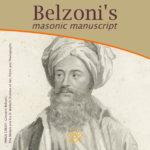 Belzoni's Masonic Manuscript is a valuable resource for anyone interested in the history and practices of Freemasonry, as well as for those interested in the broader cultural and social history of the early 19th century. The manuscript provides a rare glimpse into the inner workings of the organization, and offers insights into its beliefs, values, and practices. It is a fascinating document that continues to captivate and intrigue scholars and freemasons alike. |
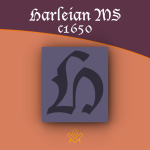 There are two known 'Harleian Manuscripts' which allude to the earliest constitutions of Masonry. |
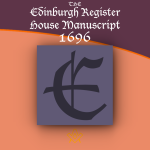 The Edinburgh Register House Manuscript (1696) At the time the manuscript was written in Edinburgh, Scotland was the home to various lodges, including those of the operative Masons of Edinburgh, it provides an interesting Masonic Catechism with questions and answers, a genuine ritual of admission. |
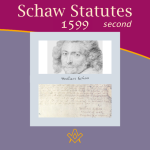 The Second William Schaw Statutes (1599) We look at a modern transcript of the second William Schaw Statutes dated 1599. An operative masons charter for stone cutters and layers in the building industry of the time. A set of rules and regulations including penalties. |
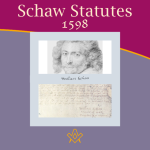 The First William Schaw Statutes (1598) We look at a modern transcript of the first William Schaw Statutes dated 1598. An operative masons charter for stone cutters and layers in the building industry of the time. |
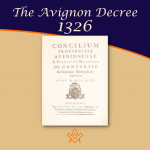 The Avignon Decree (1326) Papal Bull The several Papal declarations against Freemasons after the formation of the Grand lodge in England in 1717 are well known. The Avignon Decree (1326), published 400 years prior, is the earliest known document to set out the Catholic Church's intentions… |
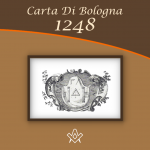 The Bologna Statutes Or Carta Di Bologna The Bologna Statutes or Carta Di Bologna 1248 - Masonic document of Operative Masonry, the oldest one found to date. |
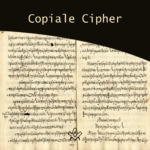 What is the connection between the Copiale Cipher and the great enlightened society of oculists ? |
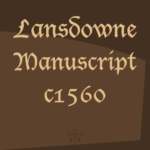 A very foolish legendary account of the origins of the Order of Freemasonry |
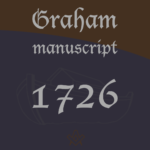 The Graham Manuscript dating from 1726 is an early Masonic document that calls upon Noah and this 3 sons in respect to Masonry, an alternative allegory to the Hiram legend. |
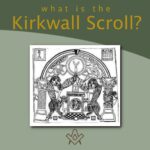 The Kirkwall Scroll is a hand-painted floor cloth depicting a myriad of symbolism |
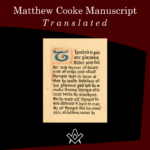 Matthew Cooke Manuscript was written c1450. A transcript of a yet older document, written by a Speculative Mason |
 Are you interested in the 'musty old documents of the past'? This article first appeared in The Builder magazine,1923 |
masonic knowledge
to be a better citizen of the world
share the square with two brothers

click image to open email app on mobile device
